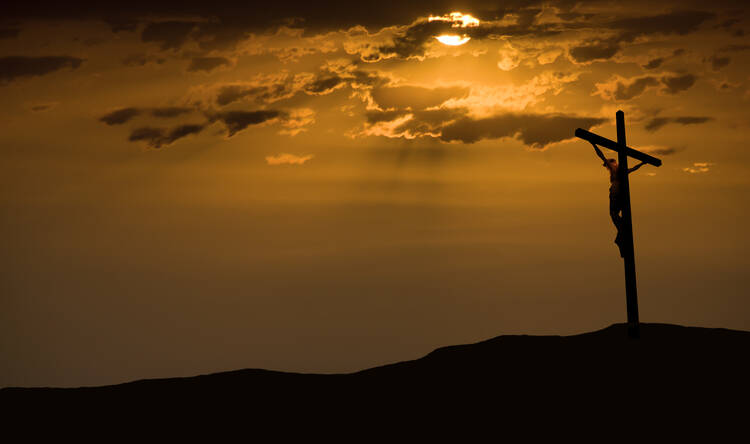A Homily for the First Sunday of Lent
Readings: Deuteronomy 26:4-10 Romans 10:8-13 Luke 4:1-13
An undergraduate saw the famous Oxford don, walking erratically across Magdalen Bridge. He presumed that the Slade Professor of Fine Art must be drunk. But the Victorian philosopher and polymath John Ruskin was quite sober.
He was walking with his eyes closed. When the student John Bodley asked why, Ruskin explained that he had “just seen a very beautiful sunset and wished to keep it in his mind’s eyes, uncontaminated by any other sights until he could be alone in his rooms.”
That is the point, the purpose of Lent. It is a way of taking in, savoring what is always there, if only we would take note of it. Ruskin closed his eyes lest a sunset fail to make a lasting impression. In Lent, we fast, we pray and we give to the poor. God does not love us more for doing these things. God cannot love us more. So why do we bother?
In Lent, we fast, we pray and we give to the poor. God does not love us more for doing these things. God cannot love us more. So why do we bother?
Because becoming aware to the point of savoring takes some effort on our part. If nothing else happens when we truly pray, we have, at least for a moment, left this world behind. We have remembered that it is passing, but we are not. Nor is the God we look upon in prayer.
Fasting allows prayer to burrow through our flesh and into our soul. All spiritual fasting is anticipatory. It is a temporary condition, one we choose to ready ourselves for a feast. The Lord Jesus commanded us to fast and to pray. He himself fasted and prayed.
One might ask, why should the Son of God do either? Christ withdrew and prayed because in becoming human he had surrendered some of that intimate awareness that simply is the Most Holy Trinity. God is pure act; we are potential. We must collect ourselves, but God simply is consummation. In emptying himself, taking the form of a slave as St. Paul says, Christ’s relationship with his Father, like all our relationships, became something he had to repeatedly choose and affirm. The Father became someone whom the Son must and did faithfully seek out in prayer, in the power and presence of the Holy Spirit.
The Son fasted, because to be human is to be scattered. Even one who had never sinned had to collect his thoughts and his energies and direct them toward the Father. Like any other physical pain, a hungry body focuses the mind.
Sunsets happen every day, but only those that we savor touch us. The world is full of people, but we must humbly seek the intimacy of others.
Some mistakenly believe that, because we come from God and can never escape the presence of God, we need do nothing extraordinary, nothing out of our way, to find God. No need for special times and places of prayer. No need to fast. No need to gather with others for Eucharist.
But, you see, God is our origin and our horizon, not one more part of the world. We are persons who live in the world. We must seek each other out and invite each other to enter companionship. That is what it means to be a person in the world. It is also how we reach out to God, the person who lies beyond the world. God cannot be less than we are. God is not less personal.
We can pick up a book, peruse the web or watch a program. But if we think that companionship is nothing more than a choice that we make, if we fail to see that we must open ourselves to it and humbly request it of another, then friendship with others will forever elude us. Intimacy is something granted, not grabbed.
Sunsets happen every day, but only those that we savor touch us. The world is full of people, but we must humbly seek the intimacy of others. We make ourselves attentive to them, body and soul. We must ask them to reveal themselves to us, to be our intimates. We must give them reason to trust us. The same is true of God.
[Lent 2022: Spiritual reflections, prayer resources and more]








